Fire Red Sky’s usual coverage of punk rock, alt rock and indie music takes a break for this issue of the newsletter - though if you’re here for the music - and nothing but the music, you might skip ahead to the end for some words on Kevin Prested’s Punk USA oral history of Lookout! Records.
After a couple of busy months at work and home I’m writing this from South West France in a holiday home just outside Toulouse. The house’s owner Lillianne picked us up from the airport and, between my broken French and her broken English, by the time we reached nearby Blagnac I had some restaurant recommendations and useful advice that one does not swim in the Garonne, which flows past Blagnac on its way to Toulouse proper.
The quiet suburb we’re staying in offers its own glimpses of French life. Such as the dustbin man, whose van blocked the street this morning so he could get his morning coffee from The Toucan pub. It also has that French town air of being semi-deserted, until market day when the varieties of bread, vegetables, meat and fruit attract more people than you would have thought possible.
We’re taking a couple of weeks’ break from the UK, slowly decompressing with precisely no plans other than to cook, eat, swim and read, possibly in that order.
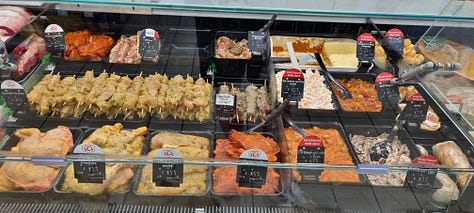
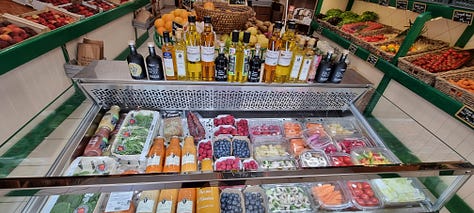
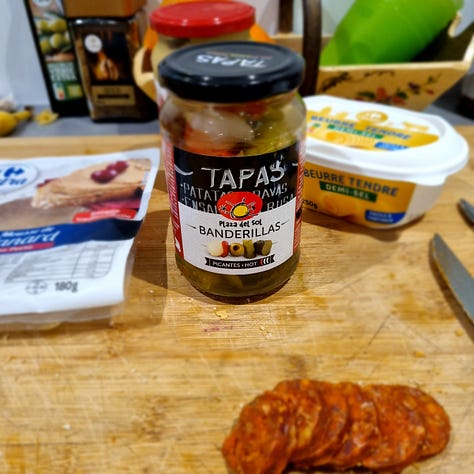
The first two are easy in France, with brie, rosé wine, ham, duck paté, and so, so many baguettes seemingly available on tap (and not just from the once-weekly market). I’m also doing my best to become a French cliché, walking to the boulangerie in the morning for a croissant for me and pain au chocolates each for Mrs T and Sons 1 and 2, or picking the 'French' burger with duck, mushrooms and fois gras in Duck and Chicken - possibly the best food court shopping mall fast food place I've ever been to. Then there’s promenarding at twilight in the local (completely unthreatening) park that winds around the wide, utilitarian Garone river, flowing on its way from the Pyrenees in Spain to the French port of Bordeaux.

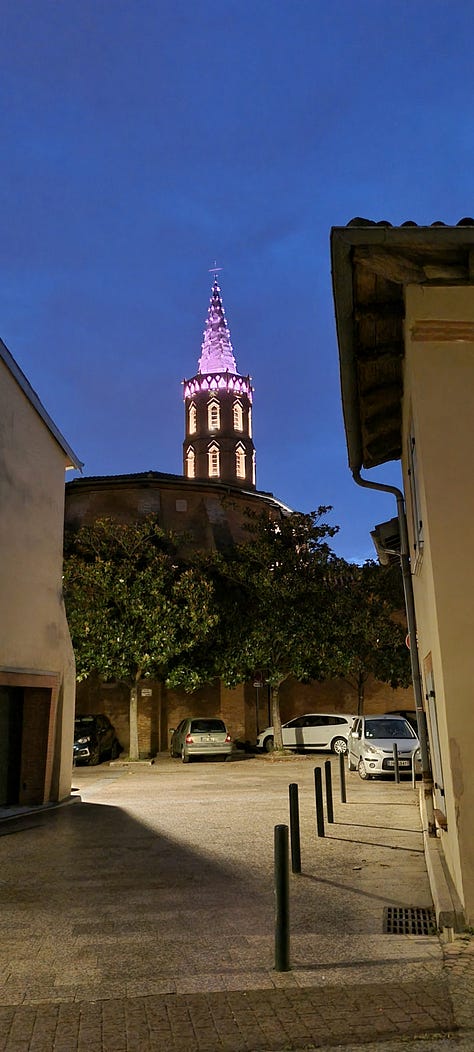

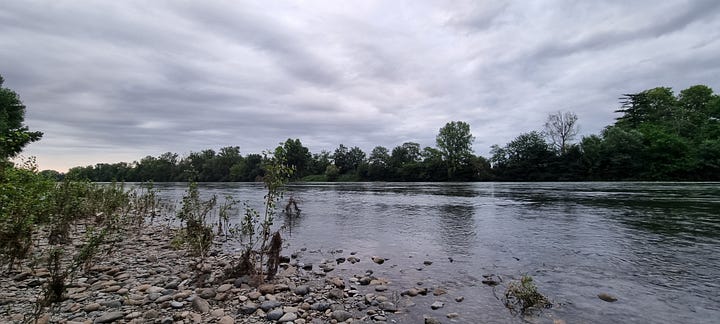

With a garden swimming pool, over which swifts dart and a cautiously friendly cat paces, taking care of the third item on my basic plan, there’s just the reading to address.
One part of that is catching up on all the great Substack newsletters I’ve not had enough time for in the last month or so. Issues like Anti-Matter’s interview with Lou Koller from Sick of it All, The Run Out Grooves on ‘After Hours’ by The Velvet Underground, and Grunge Included tracing the arc of influence from Television guitarist Tom Verlaine to Soundgarden’s Kim Thailand.
I also probably need to have fewer than 49 tabs continually open on my phone’s main browser, or 98 (99 being the maximum) in its secondary browser.
But mainly, reading means books, of the paper-based variety. In fact one of those in my to-read pile back in England is a history of paper, which looks more interesting than it might sound.
I read a fair amount of books, perhaps 40 a year, and one of the pleasures of finishing one book is choosing which one to read next. So choosing my holiday reading kept me particularly entertained before our early morning flight from Heathrow’s Terminal 5.
When I can I try to read an author in their own country - or a subject in its country. In the past that’s included sitting down with a culinary history of India while visiting Mrs T’s family in Kolkata or Bollywood memoirs in Mumbai. For this holiday I’ve got Georges Simenon’s The New Investigations of Inspector Maigret. The Belgium author’s French detective inhabits a Paris where it’s more than not autumn or winter, though the Quai des Ofevres is always stuffy. Much like the Los Angeles Raymond Chandler created for Philip Marlowe, Maigrret’s Paris is wonderfully evocative. The 17 short stories in The New Investigations… were written in Simenon’s journals during the Second World War and show his detective “uncovering the darkness beneath ordinary lives”. (Take, for example, the “sumptuous mansion hiding terrible crimes”.)
Before I can reward myself with that, I’m digging into Jack Kerouac’s first novel, 1950’s The Town and the City. Pre-dating the publication of On the Road by seven years, I’d put off picking The Town and the City up for years now, put off by its reputation for being too conventional and opting instead for later works like the dreamscapes of Visions of Cody and Doctor Sax, among others. Now, 100 pages into The Town and the City, I realise my mistake. Much as I prefer James Joyce’s Dubliners or A Portrait of the Artist as a Young Man to Ulysses, it can take a while to decide what you actually like versus what you think you should like, and I do like The Town and the City, in its great galloping sentences of enthusiasms you can also hear Kerouac revving up to write On the Road. Before that he was trying to write the Great American Novel with The Town and the City and its tale of the Martin family and small town life in early nineteenth century ‘Galloway’. There’s a thick streak of bitter-sweet bewilderment, almost melancholy, skimming along its surface, as the Martin father expresses at one point:
“This is it,” he would think. “This is the way life is. It’s such a strange thing - oh, it’s so funny, so short, God knows what it is.”
So far my only problem with the book, which Kerouac started writing when he was just 24, is that it’s either ‘of its time’ or just plain struggles to round out female characters like the Martin family’s mother. While “the men rage on in loneliness”, to the author “it’s amazing how women arc women, even in childhood”. It’s unsurprising then that author Joyce Johnson’s would title the 1983 memoir of her time with the beats (she was friends with Allen Ginsberg, Carl Solomon and William Burroughs, and dated Kerouac) and the other women in their circle Minor Characters. While Kerouac encouraged Johnson’s own writing, his male characters in The Town and the City - the Martin brothers and their father - display many traits you might ascribe to a teenage Kerouac. That’s not all bad though, the author’s first-hand knowledge of teenage football exploits certainly come through vividly on the page - even to a committed non-sports fan like myself.
I picked up a copy of G. K. Chesterton’s The Man Who Was Thursday on a whim when I was in Liverpool earlier this year, and it’s only now as I consult his Wikipedia page that I find out he was an influence on Jorge Juis Borges, who compared him to Edgar Allan Poe, and often seen as a successor to philosophical and poetic Victorian British authors like Matthew Arnold and John Ruskin, though that’s not an area of literature with which I’m familiar. But as a large man fond of capes, sword sticks and cigars, and a member of the British mystery authors’ Detection Club, his biography is interesting to say the least. The Man Who Was Thursday is a 1908 ‘metaphysical thriller’, who may be a quick way of saying, ‘I should have read more than the spy novel’s back cover blurb before buying it’, but we’ll see.
Another author I discovered on a whim ten years ago, but have had to ration myself to his limited output, is Rohinton Mistry. Such a Long Journey is the last of the Indian-born Canadian writer’s three novels I’ve got left to read and I’ll be savouring it. LIke the other two - A Fine Balance and Family Matters - Such a Long Journey is also set in India and told from the perspective of Parsis (adherents of Zoroastrianism) and, just like his other two long-form works, I’m hoping for a beautifully written page turner.
Sadie Jones’ The Snakes is another of my holiday reads set here. I’ve borrowed it from my wife to try something different, but don’t really know what to expect from its tale of British newly-weds escaping from London to drive through France, before ‘family tensions and tragedy engulf them’. Possibly not the light holiday read I was looking for then, but we’ll see.
Finally, there’s two to finish off, one that I’m deliberately taking it slow with and another whose lack of pace is not on me.
I like poetry, but I do take a rather haphazard approach to it, choosing volumes of modern poets from the library that catch my eye or picking 19th or 20th century poets to dig into. It’s one of the latter this time with British poet and novelist (and librarian) Philip Larkin. His Collected Poems, which I’m deliberately taking it slow to prolong the enjoyment, has a high strike rate, above and beyond ‘This Be the Verse’ and its famously arresting opening lines:
“They fuck you up, your mum and dad.
They may not mean to, but they do,”
Larkin’s poems, written between the 1940s and 1970s, more often focus on aspects of provincial British life, colouring them with flint sharp metaphors. However, with ‘This Be the Verse’ I can’t shake from my head the sound of Descendants singer Milo (pictured below with rest of the band at London's Brixton Academy on 11 June 2024) on their 1982 song ‘Parents’:
“Parents! Why won’t they shut up? / Parents! They’re so fucked up”.
The Descendants influence on pop-punk being what it is, that feels like a convenient segway to the last book on my list - Kevin Prested’s Punk USA: The Roots of Green Day & the Rise & Fall of Lookout! Records. The oral history of the label whose bands included at one time Operation Ivy, Rancid, Neurosis, Pansy Division, Screeching Weasel, The Queers, The Donnas, Avail, The Mr. T Experience, and many others. But it was the barrel loads of post-Dookie cash from the first Green Day albums that both made and then broke the company, aided by the kinds of poor business decisions that a lack of experience can make all too easy.
There’s a fascinating tale there and Punk USA hints at it, but the author’s desire for completeness, and lack of interest in context, sees him skirt around key moments in the label’s history - like Rancid jumping ship to Epitaph after their first EP. It perhaps doesn’t help that Jim Ruland set the bar for label histories so high with the zip and verve he brought to his SST Records book Corporate Rock Sucks, and oral histories can be tough going for readers and writers alike. Nevertheless, despite being a useful addition to punk literature just by existing, Punk USA needed a sharper editor and proofreader to raise its game. (Given that I’m typing this issue of the newsletter an iPad that’s doing its best to screw me over with autocorrect, I’m in danger of succumbing here to ‘Muphrey’s Law’ - the proofreader’s version of Murphy’s Law, whereby if you point out someone else’s typos you’re sure to make some of your own.)
So, an ambitious list for just two weeks of holiday and in all likelihood more of a summer reading list, but I’m ever an optimist when it comes to books, as my never-ending to-read pile will attest.
And now to get back to the cooking, eating, swimming - and reading!
What’s on your holiday/summer reading list?



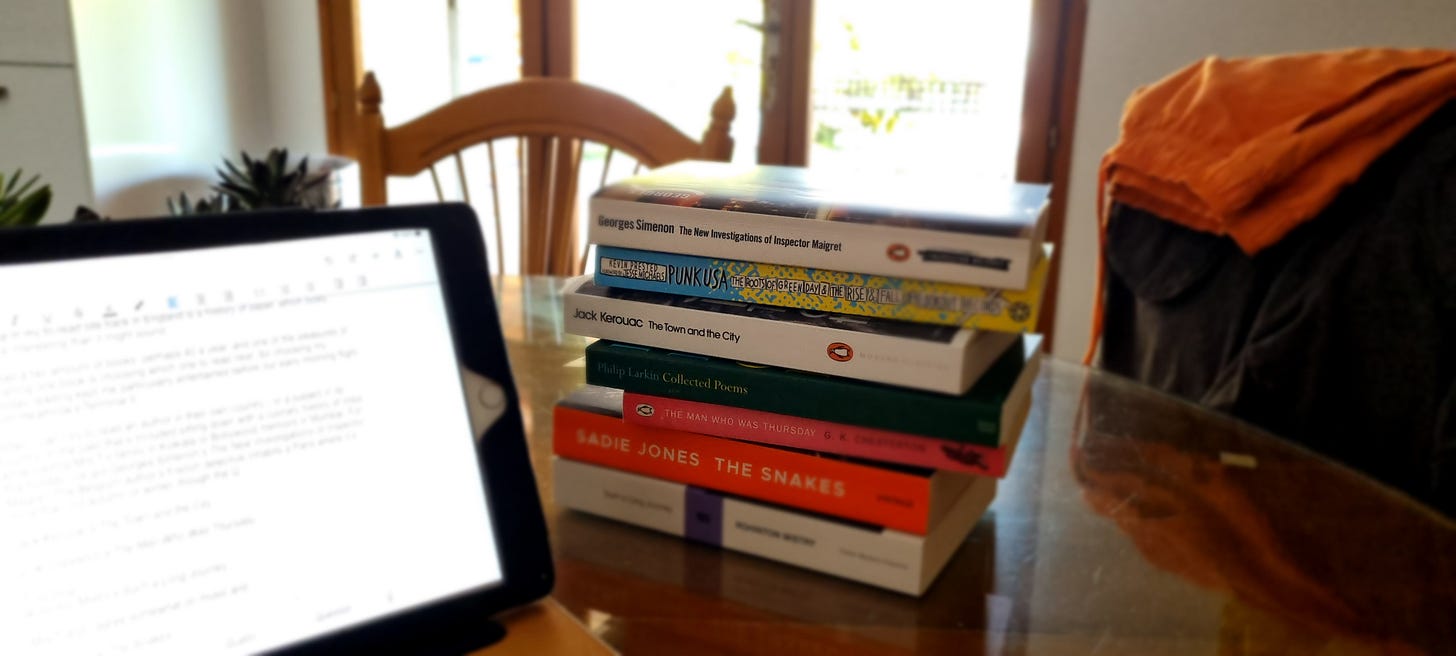
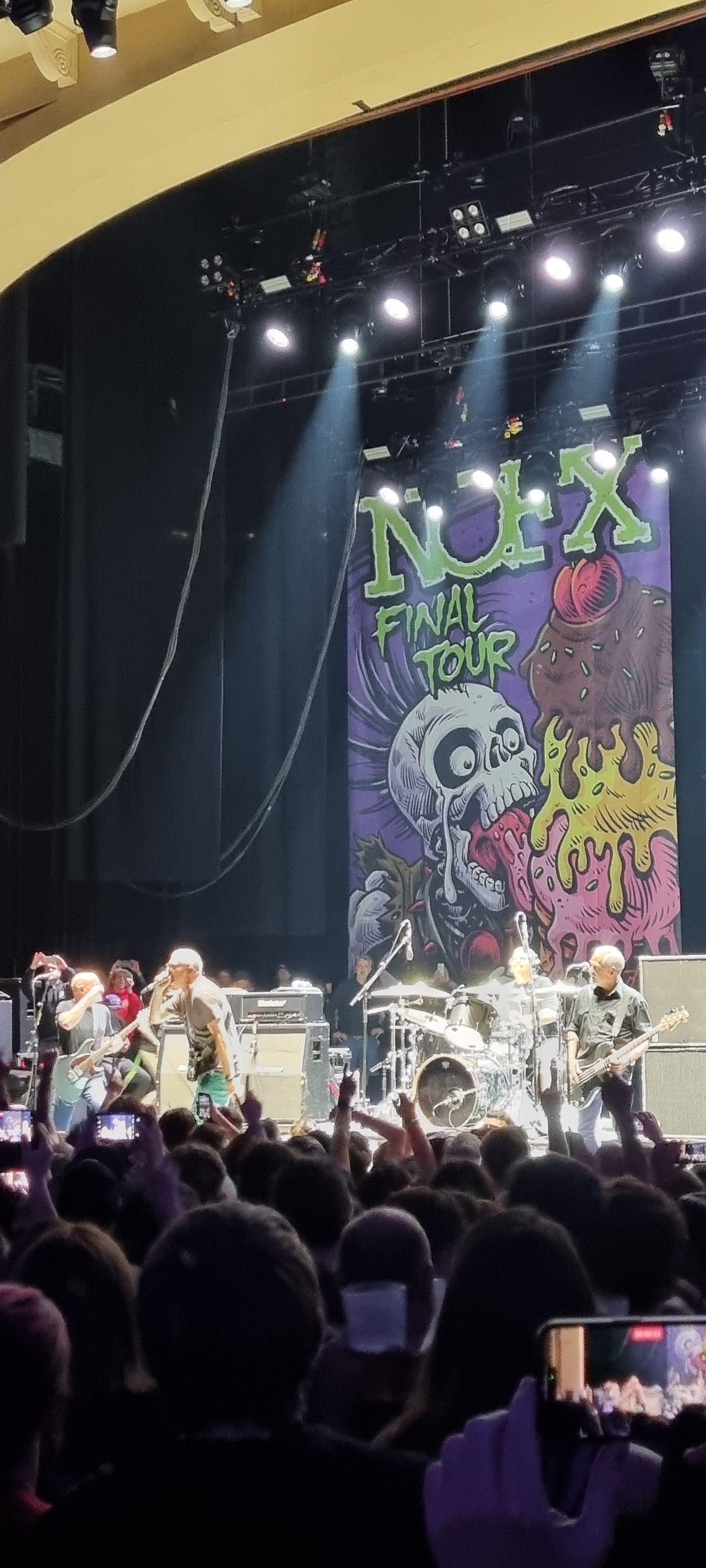
Thanks for the shout out, Dom. I'm overdue for some Simenon but I prefer the one-offs to the Maigret books.